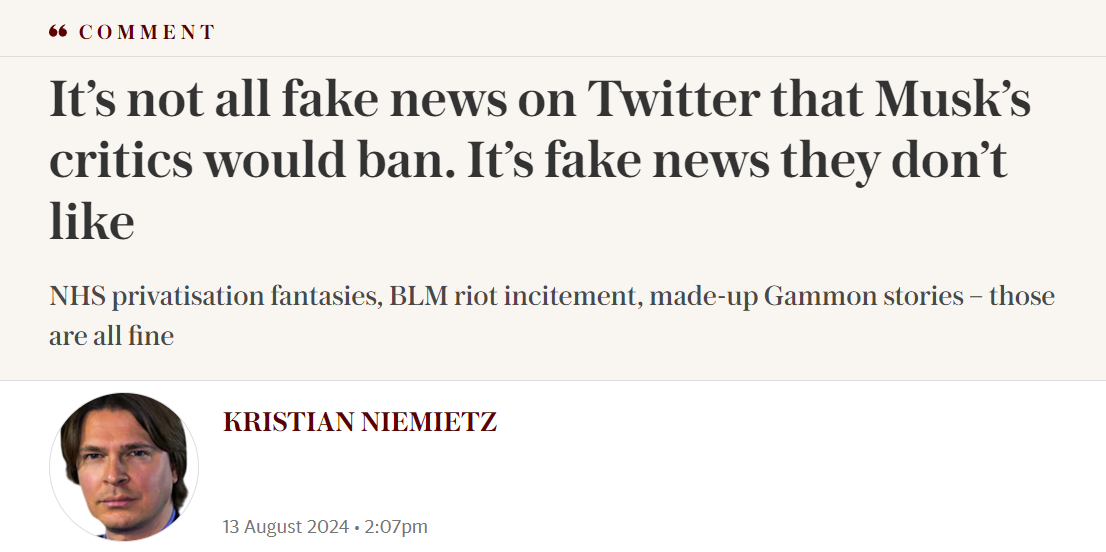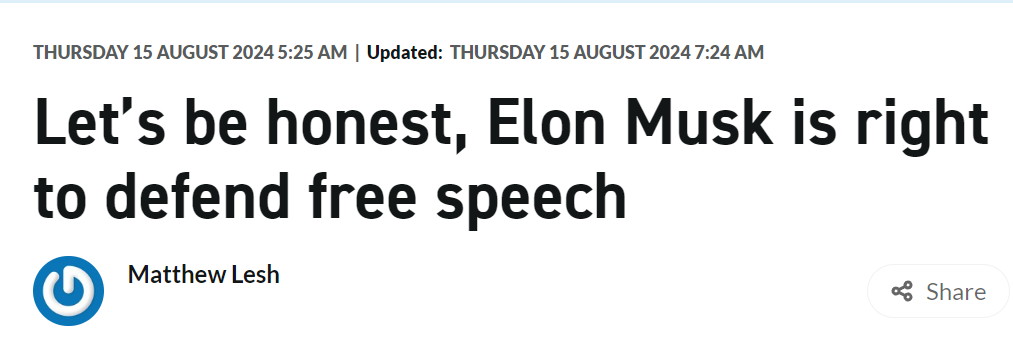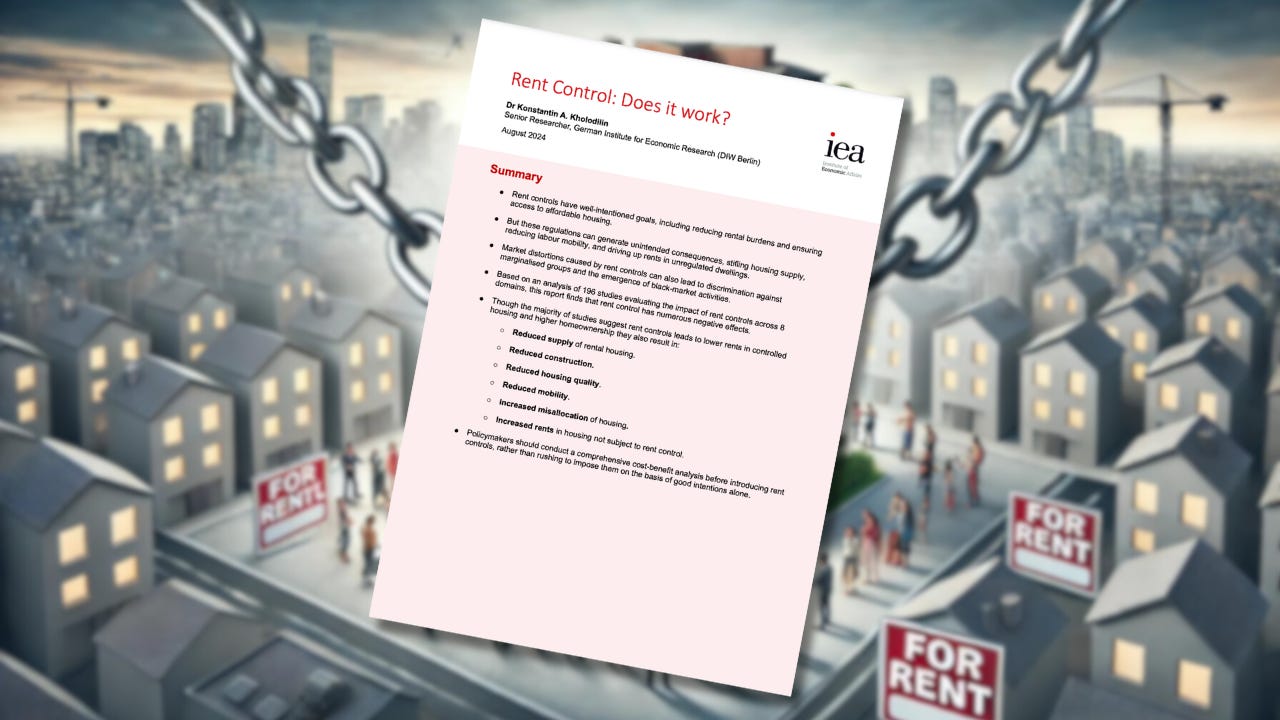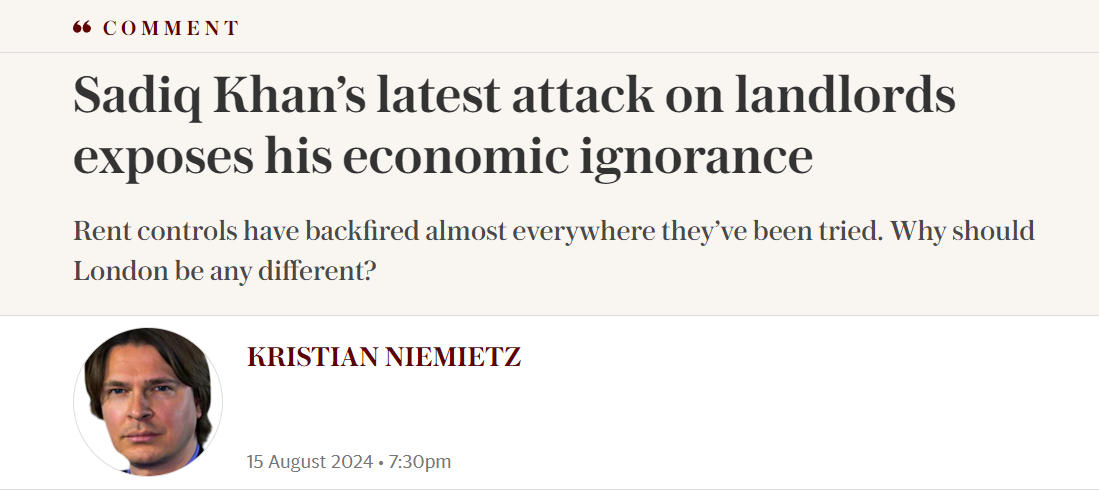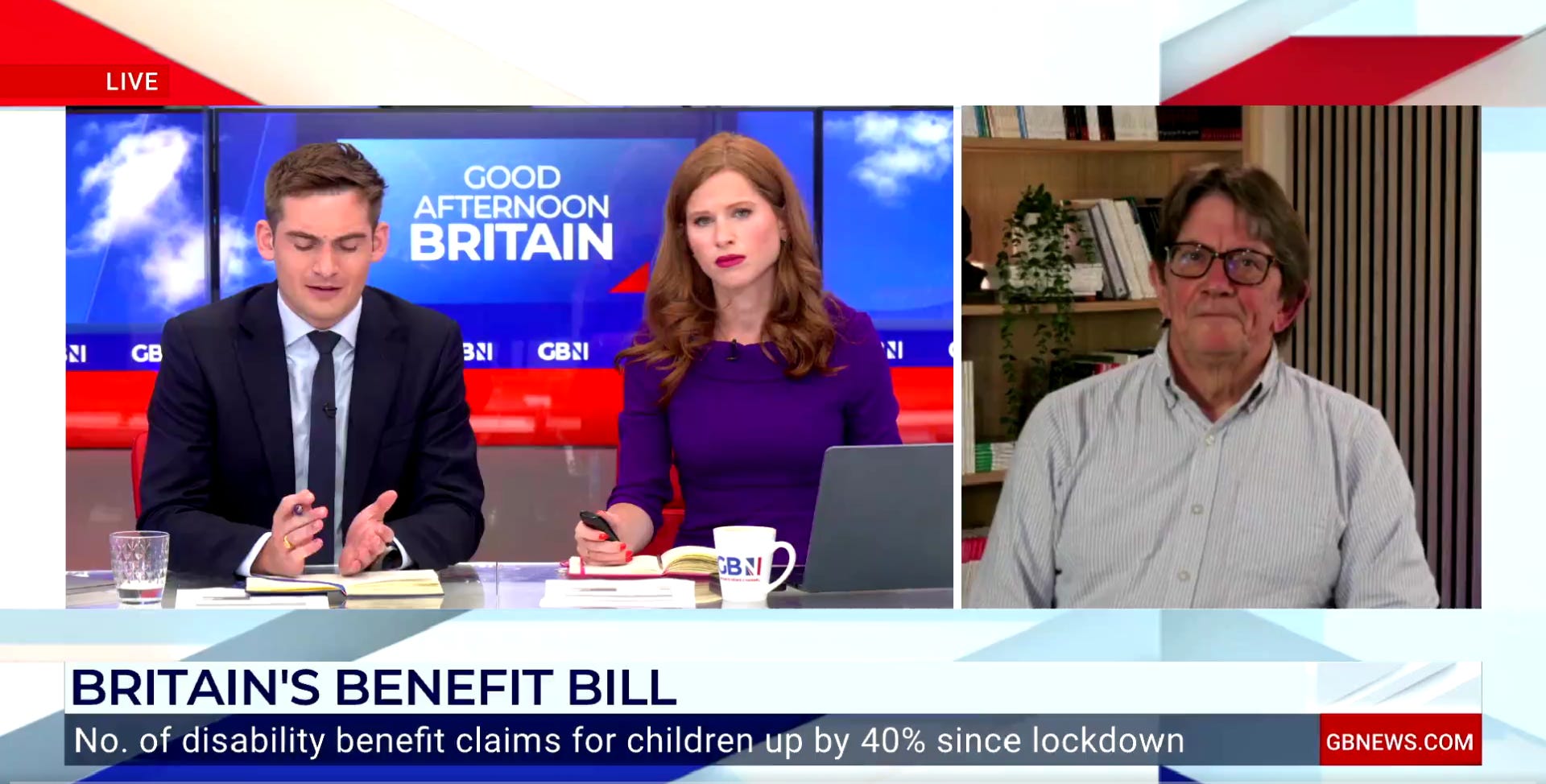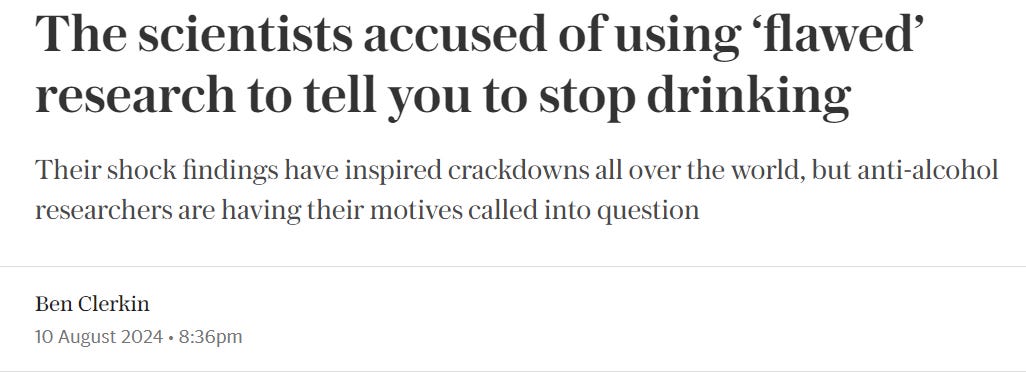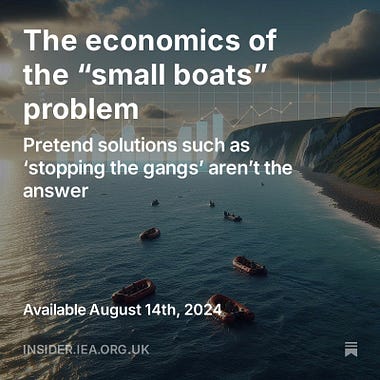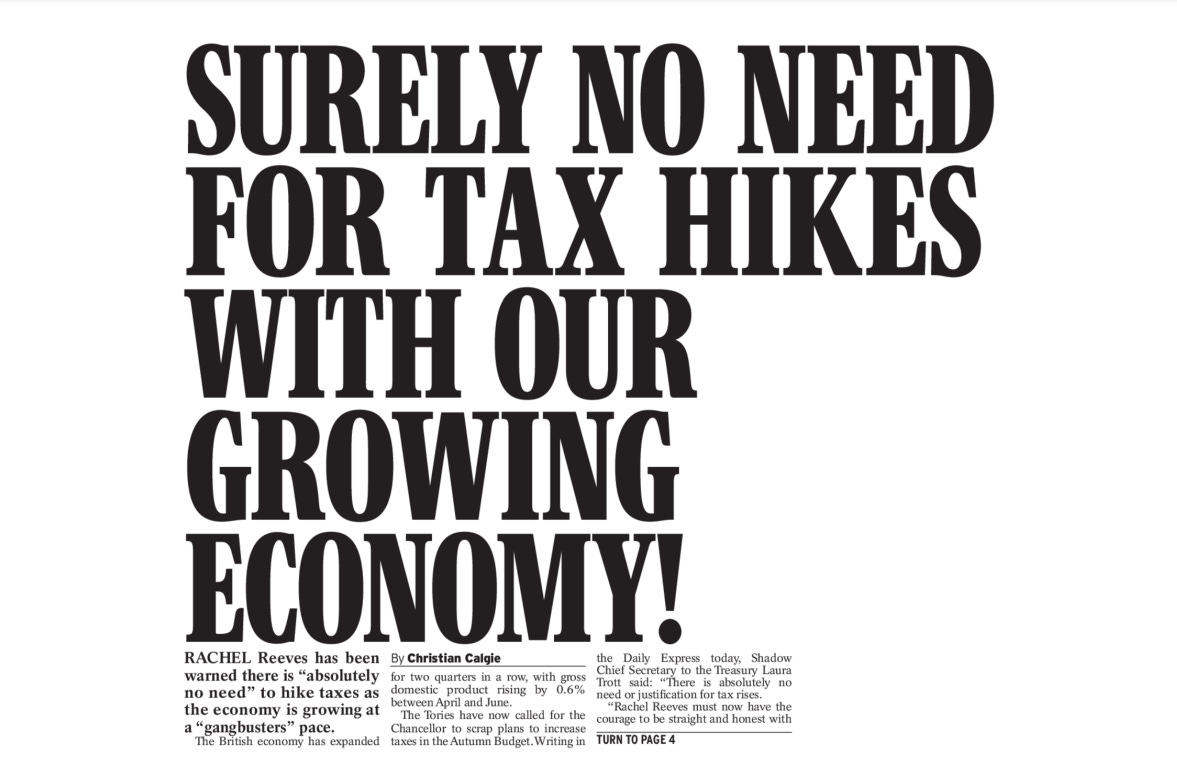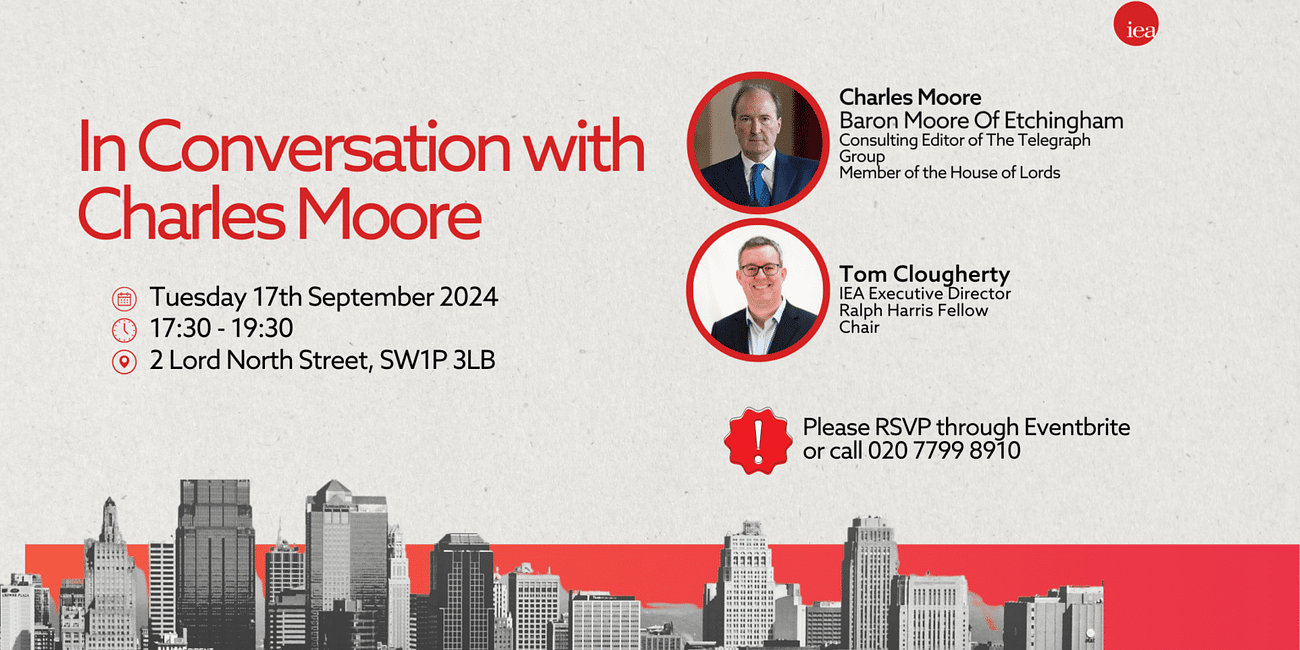|
 |
Speech is not violence
"Emergencies have always been the pretext on which the safeguards of individual liberty have eroded."
Most Brits have looked upon recent riots with abject horror. This is not just because of the associated damage or the shock in a country where such disorder is thankfully rare. It’s attracted particular concern because they appear to have been driven by forces of ethnic hatred.
As my colleague Matthew Lesh pointed out on last week’s IEA Podcast, it seems as though every different ideological camp has tried to impose its narrative about why the country is in a bad state onto the riots. Those on the right have emphasised integration and immigration issues, while those on the left have spoken about dangerous speech, particularly on social media, driving the violence. This latter narrative has led to calls for yet more censorship in the UK.
There are justifiable limitations on speech, particularly efforts to incite imminent violent action. But we are now seeing an expectation that saying something merely offensive or hateful should be removed and that the state should be involved in deciding what is true and false. In his City AM column this week, Matthew surgically identified the critical flaw in this logic:
“It presumes that the primary reason for the riots was violence ‘stirred up’ by right-wing politicians and other malicious figures. It treats people not as individuals, but rather, as empty vessels ready to be manipulated by dark forces.”
Blaming Elon Musk and social media platforms not only lets rioters off the hook for their actions but also provides a pretext for yet another alarming expansion of state power to crack down on peaceful speech. In particular, the idea of requiring social media companies, under the instruction of a state regulator, to police nebulous concepts like ‘disinformation’.
Wouldn’t it be lovely if we lived in a world without disinformation? Who could oppose that? But, of course, the law is a blunt instrument. As another of my colleagues, Kristian Niemietz, explained this week:
“Liberals know… that actually existing speech restrictions, especially when loosely and broadly defined, will not conform to some theoretical ideal. They will get politicised; they will get weaponised in the Culture War; they will be enforced unevenly, selectively, and incoherently.”
Britain’s censorship laws have already caused enough absurd and immoral outcomes, from people being jailed for sharing distasteful jokes about George Floyd on a WhatsApp group chat to pro-life campaigners being arrested for silently praying in the vicinity of abortion clinics. Far from doubling down, we should seriously discuss rolling them back.
Speech is not violence. Words cannot injure or compel a person to hate or riot. Consequently, the state has very little business policing it, and the outcomes are usually dire when it tries.
Harrison Griffiths
IEA Communications Manager
P.S. The best way to support our vital research and educational programmes is to become a paid IEA Insider. For a limited time, new paid subscribers will receive a copy of Steve Davies’ new book Apocalypse Next: The Economics of Global Catastrophic Risks) and a 15% discount.
It’s not all fake news on Twitter that Musk’s critics would ban. It’s fake news they don’t like, Editorial Director Kristian Niemietz, The Daily Telegraph & IEA Blog
Let’s be honest, Elon Musk is right to defend free speech, Director of Public Policy & Communications Matthew Lesh, City AM
The Battle for Truth: Social Media, Riots, and Freedom of Expression | IEA Podcast, Matthew Lesh, Kristian Niemietz, and member of the House of Lords Claire Fox, IEA YouTube
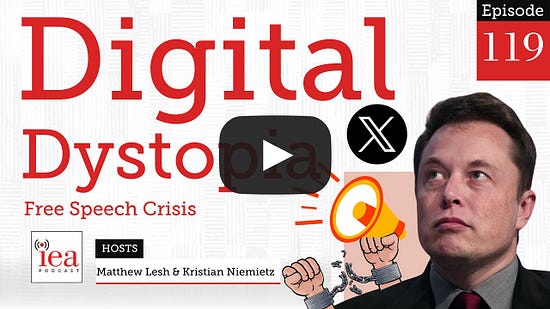
Rent Control: Does it work?
The overview highlights the academic consensus on harmful consequences.
By German Institute for Economic Research Senior Researcher Dr Konstantin A. Kholodilin
Most studies (56 out of 65) find that rent controls succeed in lowering rents for controlled units, as intended.
However, 14 out of 17 studies found that rent control leads to higher rents in the uncontrolled sector.
12 out of 16 studies found negative effects on housing supply, while 11 out of 16 studies found negative impacts on new construction.
15 out of 20 studies found rent control leads to reduced housing quality and maintenance.
25 out of 26 studies found rent control reduces residential mobility.
All 14 studies examining the issue found rent control leads to misallocation of housing.
Rent controls have backfired almost everywhere they’ve been tried. Why should London be any different?, Kristian Niemietz, The Daily Telegraph
SNP housing law ‘killed off all interest’ in building homes, Rent Control: Does it work? featured in The Herald, The Financial Times, The Daily Telegraph, The Daily Express, Scottish Housing News, Property 118, The Intermediary, and Daily Business
News, Views & Upcoming Events
Interest rates to fall on both sides of the Atlantic amid growing hopes inflation is back under control, Economics Fellow Andrew Lilico, The Daily Mail and CapX
Britain’s benefit bill, Editorial & Research Fellow Len Shackleton, GB News
The scientists accused of using ‘flawed’ research to tell you to stop drinking, Head of Lifestyle Economics Christopher Snowdon, The Daily Telegraph
The economics of the “small boats” problem, Len Shackleton, IEA Blog and The Daily Express
Surely no need for tax hikes with our growing economy!, Matthew Lesh, The Daily Express
You’re currently a free subscriber to Insider. For the full experience, upgrade your subscription.
Paid subscribers support the IEA's charitable mission and receive special invites to exclusive events, including the thought-provoking IEA Book Club.
We are offering all new subscribers a special offer. For a limited time only, you will receive 15% off and a complimentary copy of Dr Stephen Davies’ latest book, Apocalypse Next: The Economics of Global Catastrophic Risks.
